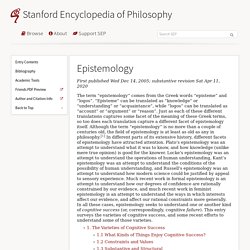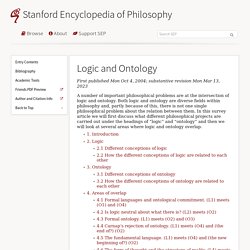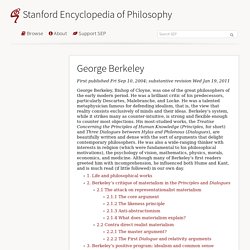

The meaning of life according to different philosophers : coolguides. A Philosophy Podcast and Blog. As the annals of history have it, in the sixth century Emperor Justinian had all the schools of philosophy that competed with Christianity finally closed.

This was the last we heard of the Epicurean School, whose tradition had remained culturally vibrant for seven centuries. Epicurus had been among the first to propose the atom (2,300 years ago), the social contract as a foundation for the rule of law, and the possibility of an empirical process of pursuit of happiness: a science of happiness. These progressive schools were oases of tranquility, reason and pleasure known as Gardens, where the ideals of civilized friendship flourished and men, women, and even slaves engaged in philosophical discourse as equals. If any set of doctrines can be considered the foundation of the Epicurean philosophy, it would be the Tetrapharmakon: The Four Remedies. For didactic purposes, the teachings were imparted in the form of short, easy to memorize adages. Do not fear the gods. On Memory and Reminiscence by Aristotle. Untitled.
ConsciousnessAChallenge. The Roots of Consciousness: History, The Age of Enlightenment. The Age of Enlightenment Descartes and Mind-Body Dualism Rene Descartes Rene Descartes (1596-1650), who was certainly not an occult scholar or even a sympathizer, nevertheless attributed all of his philosophic ideas to images that appeared to him either in dreams or when he was in the hypnogogic state just before awakening.

(In fact, he had to "prove his visibility" to keep from being associated with the Invisible College. The association of creativity with dreaaming apparently gave rise to public speculation about an actual college, perhaps diabolical, that dreamers visited in their sleep.) Mind body dualism was first formally stated in modern philosophy by Descartes. Leibnitz and Monadology Gottfried Wilhelm Leibnitz Carrying on the Pythagorean-Platonic doctrine of universal harmony, Gottfried Wilhelm Leibnitz, who with Isaac Newton was the co-inventor of calculus, developed an elegant grand philosophy based on the concept of an evolving unit of consciousness called the monad.
Idealism . . Morelocke. Epistemology. 1.

The Varieties of Cognitive Success There are many different kinds of cognitive success, and they differ from one another along various dimensions. Exactly what these various kinds of success are, and how they differ from each other, and how they are explanatorily related to each other, and how they can be achieved or obstructed, are all matters of controversy.
This section provides some background to these various controversies. 1.1 What Kinds of Thing Enjoy Cognitive Success? History of Philosophy without any gaps. Ontology_pic.pdf. Ontology: Theory and History from a Philosophical Perspective. Logic and Ontology. 1.

Introduction. Logic: a short introduction. Democritus - Ancient Greek Philosopher. Democritus (460 BCE 370 BCE) was an ancient Greek philosopher.

He is known for his influence on modern science more than any other pre-Socratic philosopher. He was also known as the “Laughing Philosopher", for his tendency to mock fellow citizens for their follies. What Democritus left has not survived in all of its physicality, but he has been written about by Aristotle (Aristotle found him to be his biggest competitor in the natural sciences), Theophrastus, Diogenes, along with a few others. The exact details of his birth are not known but estimated to be sometime around 460 BCE in Abdera, Thrace. His father was wealthy and received Xerxes as he traveled through Abdera. Atomist philosophy borders heavily on what today is considered scientific although Leucippus and Democritus were not privy to empirical reasoning behind their theory of atoms.
Schools of Thought. Timeline of Schools of Thought Rationalism Structuralism Functionalism Behaviorism Psychoanalysis Rationalism This school of thought takes on various philosophical positions that rely on the function of reason when searching for truth.

It can be contrasted with empiricism, which believes that experience is necessary to acquire knowledge. For rationalists, ideas are innate. Rene Descartes To learn more about Descartes go to: Descartes has been a major influence on philosophical psychology in several ways. Descartes, Rene [Internet Encyclopedia of Philosophy] René Descartes is often credited with being the “Father of Modern Philosophy.” This title is justified due both to his break with the traditional Scholastic-Aristotelian philosophy prevalent at his time and to his development and promotion of the new, mechanistic sciences.
His fundamental break with Scholastic philosophy was twofold. First, Descartes thought that the Scholastics’ method was prone to doubt given their reliance on sensation as the source for all knowledge. Glossary Definition: Postmodernism. A general and wide-ranging term which is applied to literature, art, philosophy, architecture, fiction, and cultural and literary criticism, among others.

Postmodernism is largely a reaction to the assumed certainty of scientific, or objective, efforts to explain reality. In essence, it stems from a recognition that reality is not simply mirrored in human understanding of it, but rather, is constructed as the mind tries to understand its own particular and personal reality. George Berkeley. 1.

Life and philosophical works Berkeley was born in 1685 near Kilkenny, Ireland. After several years of schooling at Kilkenny College, he entered Trinity College, in Dublin, at age 15. He was made a fellow of Trinity College in 1707 (three years after graduating) and was ordained in the Anglican Church shortly thereafter. At Trinity, where the curriculum was notably modern, Berkeley encountered the new science and philosophy of the late seventeenth century, which was characterized by hostility towards Aristotelianism.
Berkeley's first important published work, An Essay Towards a New Theory of Vision (1709), was an influential contribution to the psychology of vision and also developed doctrines relevant to his idealist project. The Review of Politics - Abstract - Rousseau on Self-Love: What We've Learned, What We Might Have Learned. Translating.pdf.